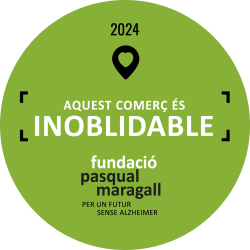
In the heart of the Pyrenees, one of the most beautiful and mountainous regions of Europe, one of the most important cultural festivals of the area is celebrated: Les Falles. This celebration has a very special history and meaning for the communities that celebrate it, and is considered a cultural and touristic treasure for the region. In this article, we explore the history, traditions and meaning of Les Falles, and discover why this festival is so important for the Pyrenees.
They say that traditions only stay alive if they are celebrated year after year with the same fervour and pride of belonging. In the Vall de Boí, the Fallas festival is much more than a simple inheritance from the past; it is a living echo of the identity of its towns, a celebration that connects generations and keeps the essence of its roots intact.
Since ancient times, this tradition has marked the pulse of life in the Vall de Boí. In ancient times, it was celebrated with the beginning of the summer solstice, when the sun reached its highest point in the sky. Today, the Fallas coincide with the main festival of each town, bringing its inhabitants together in a festivity full of magic and symbolism.
The Fallas are deeply linked to the worship of the sun, a sign of gratitude to the gods for the harvests received and a ritual to drive away evil spirits. At nightfall, the fire lights up the mountains and descends in a spectacular route to the town, guided by the fadrins (young people from the town) who carry the lit torches, creating a river of light that envelops everyone in an atmosphere of emotion and camaraderie.
The Vall de Boí runs the Fallas with the pride of keeping alive a tradition that not only remembers the past, but also celebrates the present and the future of its people.
Les Falles celebrations last several days and are filled with events and activities for the entire community. The fallas are displayed throughout the city before being burned, allowing visitors and residents to admire the work of the falleros. There are also parades, music, dancing and traditional foods, such as tortilla de patata and roast lamb.
Gastronomy is a key element of Les Falles, and the typical dishes and drinks of the festival reflect the tradition and symbolism associated with the celebration. Among the most popular dishes are trinxat, a dish made of cabbage, potato and bacon; olla aranesa, a meat and vegetable stew; and roast lamb, which is prepared in a wood-fired oven. Drinks include red wine, cider and herb liqueur.
Enjoy this season in our accommodations in Vall de Boí
.





Address: C / Riu 3 Barruera 25527 – Vall de Boi
Phone: 973694086 / 644932088
Email: info@campingboneta.com
